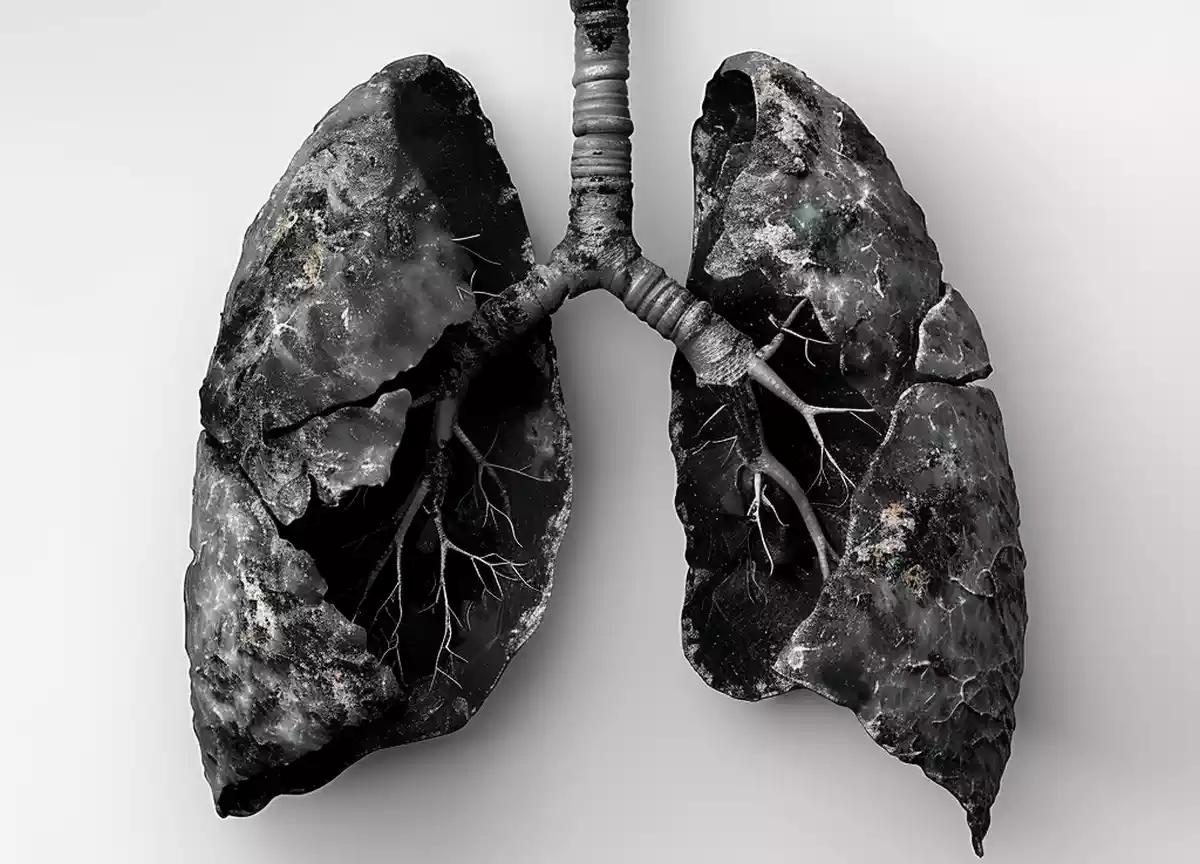
Quit smoking refers to the process of intentionally stopping tobacco use, particularly cigarette smoking. This challenging yet rewarding journey involves overcoming physical nicotine addiction and psychological dependence. Recent research has shed light on the significant health benefits of smoking cessation, particularly for lung cancer patients. A systematic review and meta-analysis conducted by Caini et al. (2022) revealed that quitting smoking at or around the time of lung cancer diagnosis can substantially improve overall survival rates. Additionally, studies have explored the motivations and difficulties individuals face when attempting to reduce or quit smoking, as well as the complex relationship between self-efficacy and intention to quit. This article delves into the multifaceted aspects of smoking cessation, examining effective strategies, health improvements, and the psychological factors that influence success in this life-changing endeavour.
The Quit Smoking Process
The journey to quit smoking is a transformative experience that requires dedication, understanding, and strategic planning. This process involves not only overcoming physical addiction but also addressing deeply ingrained habits and psychological dependencies.
Understanding Nicotine Addiction
Nicotine, the primary addictive component in tobacco, exerts a powerful influence on the brain’s reward system. When inhaled, it triggers a rapid release of dopamine, creating a sense of pleasure and relaxation. Over time, the brain adapts to this artificial stimulation, leading to:
- Tolerance: Requiring more nicotine to achieve the same effect
- Withdrawal symptoms: Experiencing discomfort when nicotine levels drop
- Cravings: Strong urges to smoke, often triggered by specific situations or emotions
The complexity of nicotine addiction underscores the importance of a multifaceted approach to smoking cessation. Research has shown that individuals with high self-efficacy regarding quitting may paradoxically have a weaker intention to quit, highlighting the nuanced psychological factors at play (Poggiolini).
Preparing to Quit: Essential Steps
Embarking on the quit smoking journey requires careful preparation:
- Set a quit date: Choose a specific day to stop smoking completely
- Identify triggers: Recognize situations, emotions, or activities that prompt smoking
- Develop coping strategies: Plan alternative actions for when cravings strike
- Gather support: Inform friends and family of your decision to quit
- Consider nicotine replacement therapy: Consult a healthcare provider about options
A study on motivations and difficulties in reducing or quitting smoking emphasized the importance of understanding individual challenges in the cessation process (Pereira et al.).
Quit Smoking Timeline: What to Expect
The body begins to heal almost immediately after the last cigarette. Understanding this timeline can provide motivation during challenging moments:
- 20 minutes: Heart rate and blood pressure start to drop
- 12 hours: Carbon monoxide levels in the blood return to normal
- 2-3 weeks: Lung function improves, and exercise becomes easier
- 1-9 months: Coughing and shortness of breath decrease
- 1 year: The risk of coronary heart disease is cut in half
- 5-15 years: Stroke risk is reduced to that of a non-smoker
Long-term benefits continue to accrue, with the risk of various cancers and other smoking-related diseases significantly decreasing over time. A systematic review and meta-analysis revealed that quitting smoking at or around the time of lung cancer diagnosis can substantially improve overall survival rates, underscoring the critical importance of cessation even for those already facing serious health consequences (Caini et al.).
The quit smoking process is not linear, and many individuals experience setbacks. However, each attempt to quit increases the likelihood of long-term success. It’s crucial to view relapses not as failures but as learning opportunities to refine strategies and strengthen resolve.
Navigating the quit smoking journey requires perseverance and adaptability. By understanding the nature of nicotine addiction, preparing thoroughly, and anticipating the body’s healing process, individuals can significantly increase their chances of successfully breaking free from tobacco dependence. Remember, quitting smoking is one of the most impactful decisions one can make for their health, offering immediate and long-lasting benefits that extend far beyond the individual to positively impact families and communities.
Health Benefits and Motivations
The decision to stop smoking marks a pivotal moment in one’s health journey, offering a cascade of positive changes that ripple through every aspect of well-being. Understanding these transformations can serve as a powerful motivator for those embarking on the path to a smoke-free life.
Immediate and Long-term Health Improvements
The body’s remarkable capacity for healing becomes evident almost instantly after quitting:
- Within 20 minutes: Blood pressure normalizes, and heart rate decreases
- After 8 hours: Oxygen levels rise, while carbon monoxide levels plummet
- Within 48 hours: Taste and smell senses sharpen noticeably
- In 2-12 weeks: Circulation improves, enhancing physical performance
Long-term benefits accumulate steadily:
- 1-9 months: Coughing and shortness of breath diminish significantly
- After 1 year: Risk of coronary heart disease halves
- 5-15 years: Stroke risk equalizes with that of non-smokers
- After 10 years: Lung cancer risk drops to about half that of a smoker
These improvements extend beyond physical health. Many ex-smokers report enhanced mental clarity, reduced anxiety, and a profound sense of accomplishment. The financial savings from quitting can be substantial, often amounting to thousands per year, which can be redirected towards other life-enhancing pursuits.
Quitting Smoking and Cancer Survival Rates
Recent research has shed light on the critical importance of smoking cessation, particularly for those facing cancer diagnoses. A groundbreaking systematic review and meta-analysis revealed that quitting smoking at or around the time of a lung cancer diagnosis can dramatically improve overall survival rates (Caini et al.). This finding underscores the body’s resilience and its ability to benefit from positive changes, even in the face of serious illness.
Key points from the study include:
- Patients who quit smoking showed significantly better survival outcomes
- The benefits were observed across various stages of lung cancer
- Smoking cessation appeared to enhance the effectiveness of cancer treatments
These results highlight the importance of integrating smoking cessation support into cancer care protocols. For individuals diagnosed with cancer, quitting smoking emerges as a powerful, actionable step towards improving their prognosis and quality of life.
Psychological and Social Benefits
The act of quitting smoking extends far beyond physical health, touching upon psychological well-being and social dynamics:
- Enhanced self-esteem: Successfully quitting boosts confidence and self-efficacy
- Reduced stress: Contrary to common belief, long-term smoking cessation leads to lower stress levels
- Improved mood: Many ex-smokers report decreased symptoms of depression and anxiety
- Better relationships: Non-smoking status can improve personal and professional interactions
The intricate relationship between one’s own views, social support, and success in quitting smoking was brought to light in an intriguing study on motivation and challenges in cutting back or stopping smoking (Pereira et al.). The study underlined how important it is to comprehend each person’s goals and obstacles in order to design personalized assistance plans.
Remarkably, a different study found that a strong sense of self-efficacy in quitting smoking might inadvertently reduce the intention to stop (Poggiolini). This surprising result highlights the need for a reasonable, realistic approach to quitting by implying that overconfidence may result in complacency.
The social advantages of stopping smoking spread to friends, family, and even larger populations. Ex-smokers frequently turn into influential proponents of smoke-free environments, enhancing public health outside of their own personal circles.
People who are making efforts toward quitting frequently find unanticipated advantages. Many claim to have a heightened appreciation for food and perfumes due to their restored sense of taste and smell. Some discover they have greater energy for hobbies, social interactions, and physical activities. The entire quality of life may undergo a significant alteration as a result of these advancements added together.
The numerous health advantages and reasons to stop smoking present an enticing picture of the favorable outcomes that await individuals who take this step. Making the decision to stop smoking may have a significant positive influence on all aspects of life, from improved psychological health to long-term cancer survival advantages, as well as favorable social effects.
Effective Strategies to Quit Smoking
Breaking free from tobacco addiction requires a multifaceted approach, combining willpower with proven techniques and support systems. The journey to quit smoking is unique for each individual, yet certain strategies have shown consistent effectiveness across diverse populations.
Behavioural Techniques and Support Systems
Behavioral modifications form the cornerstone of successful smoking cessation:
- Identify triggers: Recognize situations, emotions, or environments that prompt smoking urges
- Develop coping mechanisms: Create a toolkit of strategies to manage cravings:
- Deep breathing exercises
- Short bursts of physical activity
- Mindfulness meditation
- Engaging in a hobby or distraction technique
- Gradual reduction: Some find success in systematically decreasing cigarette consumption over time
- Cold turkey: Others prefer an abrupt cessation, cutting out all tobacco products at once
Support systems play a crucial role in the quit smoking process:
- Professional counseling: One-on-one or group therapy sessions with trained specialists
- Quitlines: Telephone-based support offering advice and encouragement
- Support groups: Sharing experiences with fellow quitters can provide motivation and practical tips
- Digital apps: Smartphone applications that track progress and offer real-time support
Research by Pereira et al. highlighted the importance of understanding individual motivations and difficulties in the smoking cessation process. Their study emphasized the need for tailored support strategies that address personal challenges and leverage unique motivators for each quitter.
Pharmacological Aids and Their Efficacy
Medication can significantly enhance the chances of successfully quitting smoking:
- Nicotine Replacement Therapy (NRT):
- Patches, gum, lozenges, nasal sprays, or inhalers
- Provides controlled nicotine doses to manage withdrawal symptoms
- Available over-the-counter in many countries
- Prescription Medications:
- Varenicline (Chantix): Reduces cravings and blocks nicotine’s pleasurable effects
- Bupropion (Zyban): An antidepressant that helps manage nicotine withdrawal
- Combination Therapy:
- Using NRT alongside prescription medication can be more effective than single-method approaches
A meta-analysis by Caini et al. underscored the importance of smoking cessation in improving cancer survival rates. While their study focused on lung cancer patients, the findings suggest broader implications for overall health improvement through quitting smoking, potentially enhancing the efficacy of various medical treatments.
Overcoming Challenges and Preventing Relapse
The path to permanent smoking cessation often involves navigating numerous challenges:
- Withdrawal symptoms: Managing physical discomfort and mood changes
- Weight gain concerns: Addressing potential appetite increases and metabolic changes
- Social pressure: Navigating situations where smoking was previously a social activity
- Stress management: Developing new coping mechanisms for life’s stressors
Strategies for long-term success include:
- Celebrating milestones: Acknowledging progress, no matter how small
- Reframing setbacks: Viewing slips as learning opportunities rather than failures
- Lifestyle changes: Incorporating regular exercise and a balanced diet
- Mindfulness practices: Developing awareness of triggers and emotional states
An intriguing study by Poggiolini revealed that high self-efficacy regarding smoking cessation might paradoxically weaken the intention to quit. This counterintuitive finding suggests the importance of maintaining a realistic perspective throughout the quitting process, balancing confidence with vigilance against complacency.
Preventing relapse requires ongoing vigilance and strategy:
- Identify high-risk situations: Anticipate and plan for challenging scenarios
- Maintain support networks: Continue engaging with support systems even after initial success
- Practice stress-reduction techniques: Implement relaxation methods to manage life’s pressures
- Stay committed to a smoke-free identity: Reinforce the decision to be a non-smoker regularly
The journey to quit smoking is rarely linear. Many individuals experience multiple attempts before achieving long-term success. Each attempt provides valuable insights, strengthening resolve and refining personal strategies for the next effort.
By combining behavioral techniques, pharmacological aids, and robust support systems, individuals can significantly increase their chances of successfully quitting smoking. The key lies in persistence, self-compassion, and a willingness to adapt strategies as needed throughout the quitting process.
Conclusion
Giving up smoking is a life-changing experience that has a significant positive impact on one’s physical and mental health as well as general quality of life. The benefits of quitting smoking are indisputable, ranging from the short-term enhancement of cardiovascular function to the long-term decrease in cancer risks. Extensive research highlights the significance of customized treatments that integrate behavioral tactics, medication assistance, and strong support networks. Although quitting smoking might be difficult, every effort to quit improves one’s determination and tailors one’s approach. Through a realistic yet determined perspective, using resources, and a knowledge of the intricacies of nicotine addiction, people may effectively traverse the process of quitting smoking and embrace a healthy, smoke-free future.
enofmedicines.com
Bibliography
- Caini, S., et al. “Quitting smoking at or around diagnosis improves the overall survival of lung cancer patients: a systematic review and meta-analysis.” Journal of Thoracic Oncology, 2022. sciencedirect.com
- Pereira, M.O., et al. “Motivation and difficulties to reduce or quit smoking.” Revista brasileira de enfermagem, 2020. www.scielo.br
- Poggiolini, C. “High self-efficacy regarding smoking cessation may weaken the intention to quit smoking.” Cogent Psychology, 2019. www.tandfonline.com
FAQ
How to quit smoking?
Quitting smoking involves a multi-faceted approach. Start by setting a quit date and informing friends and family for support. Consider nicotine replacement therapy or prescription medications. Develop coping strategies for cravings, such as exercise or deep breathing. Join support groups or use quit-smoking apps for ongoing motivation and guidance.
What happens when you quit smoking?
When you quit smoking, your body begins to heal immediately. Within 20 minutes, heart rate and blood pressure drop. After 12 hours, carbon monoxide levels normalize. In 2-12 weeks, circulation improves and lung function increases. Over time, risks of heart disease and cancer decrease significantly, while energy levels and overall health improve.
What is the best way to quit smoking?
The best way to quit smoking varies for each individual. Some find success with the "cold turkey" method, while others prefer gradual reduction. Combining nicotine replacement therapy with behavioral support often yields good results. Consult a healthcare provider to develop a personalized plan that addresses your specific needs and challenges.
What quit smoking aids are available?
Quit smoking aids include nicotine patches, gum, lozenges, nasal sprays, and inhalers. Prescription medications like varenicline (Chantix) and bupropion (Zyban) can help reduce cravings. Digital apps provide tracking and support. Behavioral therapy and support groups offer guidance and motivation. Always consult a healthcare provider before using any quit smoking aids.
What is the quit smoking timeline?
The quit smoking timeline varies, but general milestones include: 20 minutes (heart rate normalizes), 12 hours (carbon monoxide levels drop), 2-3 weeks (easier breathing), 1-9 months (reduced coughing), 1 year (heart disease risk halves), 5-15 years (stroke risk equalizes with non-smokers), 10 years (lung cancer risk halves). Benefits continue accumulating long-term.
What are effective ways to quit smoking?
Effective ways to quit smoking include nicotine replacement therapy, prescription medications, behavioral counseling, and support groups. Cold turkey and gradual reduction methods work for some. Combining multiple approaches often yields better results. Regular exercise, stress management techniques, and avoiding triggers are also crucial for long-term success.
How can I stay motivated when quitting smoking?
Stay motivated by setting clear goals and tracking progress. Celebrate milestones, no matter how small. Remind yourself of health and financial benefits. Use visualization techniques to imagine a smoke-free life. Join support groups or partner with a quit buddy. Develop new hobbies to replace smoking habits. Remember, each attempt brings you closer to success.



